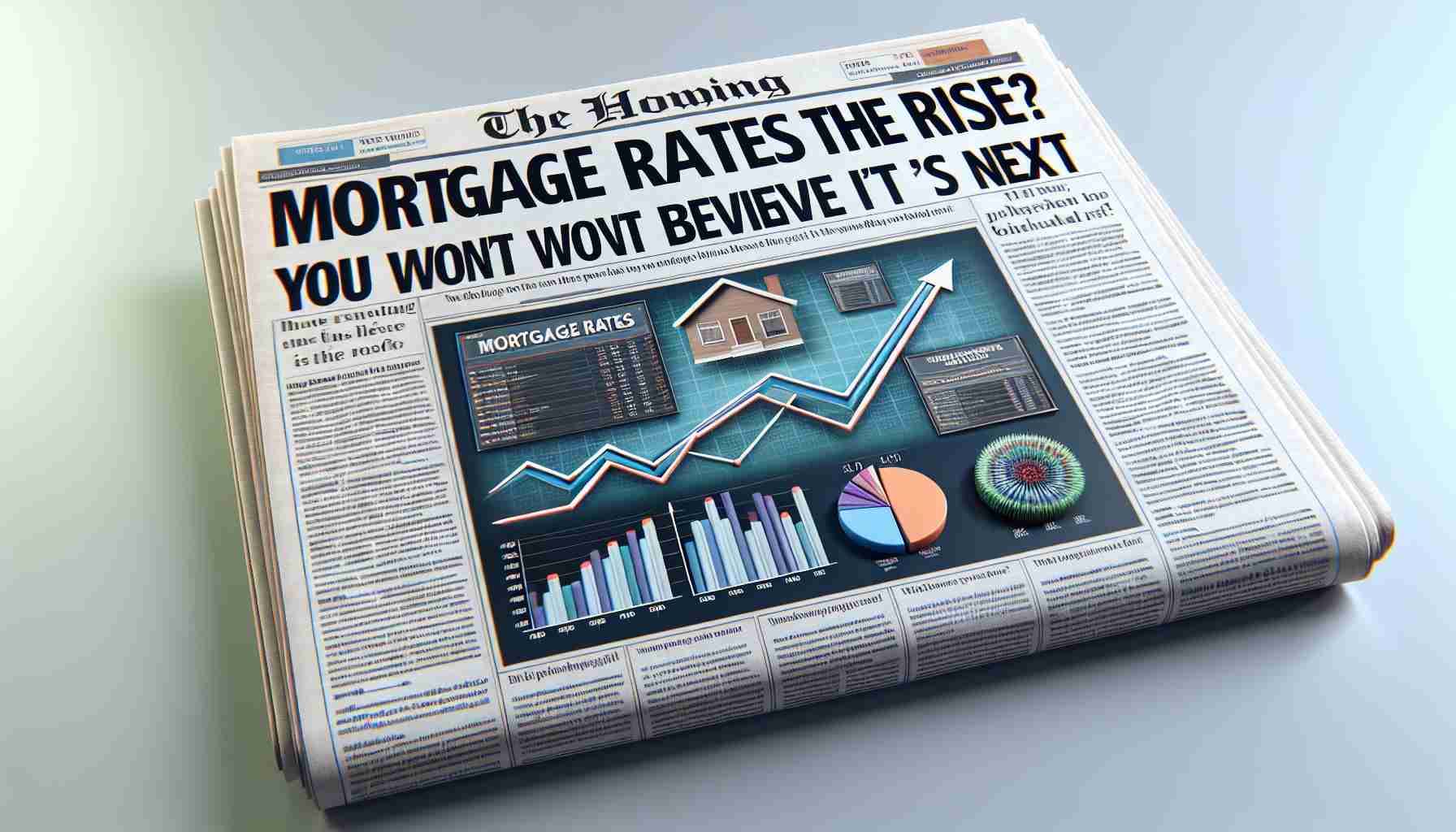As 2025 approaches, experts are closely monitoring the trends in mortgage rates. Notably, a prominent economist has indicated that the decrease in these rates will gradually come to a halt. According to this authority in the field, the stabilization of mortgage rates is expected to occur smoothly as we move into the new year.
In January 2025, the average interest rate on home loans remains relatively low, at just 3.24%. This figure suggests a period of sustained affordability for potential homebuyers, allowing more individuals to enter the housing market without facing exorbitant borrowing costs.
However, the looming prediction about mortgage rates suggests that the easy days of falling rates may be behind us. As we look toward the future, it appears that homebuyers should prepare for a standard of lending that may stabilize rather than decline. This could imply that those looking for the right time to buy need to act soon, as rates could remain capped at these levels for the foreseeable future.
In conclusion, while the current landscape offers attractive rates for mortgages, industry forecasts indicate a turning point approaching in 2025, marking a significant moment for those hoping to finance their dream homes. It’s crucial for buyers and investors alike to stay informed as these developments unfold.
Shifting Currents: The Broader Implications of Stabilizing Mortgage Rates
The evolving landscape of mortgage rates carries substantial implications for society and culture, particularly concerning homeownership accessibility and wealth distribution. As rates stabilize, potential homeowners may face prolonged challenges in entering the market. This shift can exacerbate existing inequalities, particularly for first-time buyers and marginalized communities, who might struggle with affordability during a time when housing inventory remains limited.
On a global economic scale, stable mortgage rates can influence consumer spending behavior. Individuals with fixed-rate mortgages are likely to feel more financially secure, potentially increasing disposable income for other expenditures. However, higher or stagnant rates could deter investment in housing and related sectors, creating a ripple effect that slows down economic growth in construction and retail markets.
The environmental implications of stable mortgage rates also warrant attention. With more people drawn to homeownership, urban sprawl may intensify as buyers seek affordable options beyond city centers, leading to increased vehicle emissions and habitat disruption. Yet, a trend toward sustainable building practices and energy-efficient homes might gain traction, as buyers look to minimize future costs and environmental impact.
Looking ahead, this stability may usher in new trends in housing finance, such as adjustable-rate mortgages becoming increasingly popular again. Understanding these dynamics offers critical insights for stakeholders navigating the complex terrain of real estate investment and societal welfare.
Are Mortgage Rates Set to Stabilize? Future Predictions and Insights for Homebuyers
As we approach 2025, the landscape of mortgage rates is becoming increasingly significant for potential homebuyers and investors. Industry experts are indicating that the era of declining mortgage rates may be nearing an end, ushering in a new phase of stability.
Current Trends in Mortgage Rates
As of January 2025, the average interest rate on home loans is projected to hold steady at around 3.24%. This rate is promising for prospective buyers, suggesting continued affordability. Homebuyers can take advantage of these relatively low borrowing costs, which can facilitate easier entry into the housing market. However, the comfort of falling rates may soon be a thing of the past.
Predictions for 2025 and Beyond
Experts predict that the stabilization of mortgage rates will significantly impact home buying strategies. Rather than witnessing further reductions, homebuyers may find themselves facing a consistent interest rate environment. This development encourages buyers to act quickly if they are considering a purchase, as the anticipated plateau could mean that borrowing costs will not decrease further.
Market Implications
The stabilization of mortgage rates could lead to various outcomes in the housing market:
– Competition Among Buyers: With borrowing costs remaining stable, demand may increase as more buyers enter the market, leading to heightened competition and potentially driving home prices upward.
– Shift in Investment Strategies: Investors might need to pivot from strategies that capitalized on falling rates to those that address stable or rising rates.
– Mortgage Products Innovation: Lenders may introduce new mortgage products or adjust existing ones to attract borrowers in this evolving landscape.
Pros and Cons of Steady Mortgage Rates
Pros:
– Predictability: Homebuyers can plan their budgets effectively without the uncertainty of fluctuating rates.
– Long-Term Planning: Stable rates can encourage long-term investment in real estate as individuals and families feel more confident in their purchasing decisions.
Cons:
– Risk of Price Increases: Sustained demand could lead to higher home prices, making it tougher for first-time buyers to enter the market.
– Potential for Economic Downturns: A stabilized rate environment might indicate broader economic challenges, which could affect employment and housing demand.
Future Considerations
As we look ahead, it is vital for buyers and investors to stay informed about market movements and mortgage trends. Keeping an eye on economic indicators, federal policy changes, and global market conditions will be essential in making informed decisions.
For ongoing updates and expert insights about mortgages and the housing market, consider visiting Realtor.com.
Conclusion
The outlook for mortgage rates in 2025 points toward stabilization rather than further decline. Homebuyers should prepare for a more consistent lending environment and act proactively in response to changing market dynamics. Understanding these trends will be crucial for making educated decisions in the housing market moving forward.
